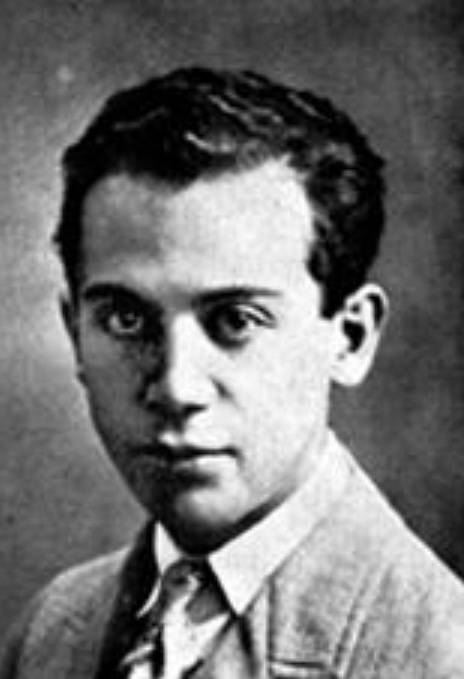Augusto Arias Robalino (Quito, March 15, 1903 – Quito, August 24, 1974) was an Ecuadorian poet, essayist, biographer, anthologist, scholar, university professor, and literary critic. His poetry collection Del Sentir (1920) reflects the modernismo movement of early twentieth-century Ecuador. Arias was a passionate scholar of Ecuadorian letters and authored influential studies, including Panorama de la Literatura Ecuatoriana (1936), España en los Andes (1950), and El Viajero de Papel (1968). He also produced biographical studies on prominent figures such as Eugenio Espejo, Luis A. Martínez, and Pedro Fermín Cevallos. Additionally, he co-edited Antología de Poetas Ecuatorianos (1944) with Antonio Montalvo, marking one of the earliest collaborative efforts to document and celebrate Ecuadorian poetry.
Early Life and Education
Augusto Arias Robalino was born on March 15, 1903, in Quito, Ecuador, to Sergio Arias Moscoso and Alejandrina Robalino Valdivieso. His father, a prominent liberal activist, had a deep influence on Quito’s cultural landscape and was active in the literary circle, publishing poems and essays. Arias lost his father in 1911, leaving him to face a financially challenging childhood. He attended primary school at San Luis Gonzaga and the Pensionado of Dr. Pedro Pablo Borja Yerovi, later enrolling at the Instituto Nacional Mejía, where he fostered a passion for literature and met future literary icons Jorge Carrera Andrade and Gonzalo Escudero. During his youth, Arias contributed to student publications, including the magazine El Crepúsculo.
Literary Career
Arias’ early literary works reflected his love for poetry. His first poetry book, Del Sentir (1920), contained intimate reflections that were well-received, especially by Quito’s readers. This was followed by Poemas Últimos (1921), both characterized by a nostalgic style influenced by Parnassian aesthetics. Despite his early success as a poet, Arias gradually transitioned into prose and essay writing. By 1926, he had co-founded the leftist weekly La Antorcha, which underscored his engagement with political issues.
Arias is best remembered for his critical essays and biographies. His 1929 work, Mariana de Jesús, on the Ecuadorian religious figure, was notable for its rich narrative and modern biographical approach. He also wrote about other prominent Ecuadorian figures, including Eugenio Espejo in El Cristal Indígena (1934), which secured his reputation as a biographer. Additionally, he was a central figure in Quito’s literary society and a member of Grupo América, where he contributed essays and articles on cultural topics.
Arias’ essays often explored historical and literary themes, drawing connections between Ecuadorian and international writers. His 1930 lecture Virgilio en castellano, delivered on Virgil’s bimillennial anniversary, was well-received. Over the years, he contributed essays to Ecuadorian and Latin American journals, including Repertorio Americano in Costa Rica and Revista Nacional de Cultura in Venezuela. In the 1930s and 1940s, he published several major works, including Panorama de la Literatura Ecuatoriana (1936), a foundational text on Ecuadorian literature that remains widely referenced.
Academic and Intellectual Contributions
Arias served as a professor and later as dean at the Faculty of Philosophy and Letters at the Universidad Central in Quito. He taught literature, influencing generations of students with his insight and passion for Ecuadorian and Latin American letters. His 1944 collaboration with Antonio Montalvo on an anthology of Ecuadorian poetry was a landmark project, showcasing the country’s poetic heritage.
He also frequently wrote for prominent newspapers, such as El Comercio in Quito and La Nación in Buenos Aires. His works were celebrated for their refined prose and intellectual depth, contributing significantly to Ecuador’s literary identity.
Personal Life
Arias married Clemencia Coloma Silva in 1946, and although they did not have children, their marriage was marked by a shared love for culture and travel. Known for his energetic and expressive demeanor, Arias was a prominent figure in Quito’s cultural circles. He was an inveterate smoker, a habit that eventually led to respiratory issues later in life.
Legacy and Recognition
Arias’ literary legacy is anchored by his biographical and critical works, which highlighted Ecuador’s cultural and historical figures. His Panorama de la Literatura Ecuatoriana remains one of his most enduring contributions, as it encapsulates the richness of Ecuadorian literature with precision and insight. His work was influential in shaping Ecuador’s literary self-perception, particularly his nuanced understanding of baroque aesthetics and patriotic themes.
Arias continued writing until his death on August 24, 1974, from complications related to respiratory illness. Posthumously, his work has been celebrated as a testament to Ecuadorian culture, and he is remembered as a literary craftsman who explored complex themes with intellectual rigor and artistic grace.
Works
Poetry
- Del sentir (Quito, 1920)
- Poemas íntimos (Quito, 1921)
- El corazón de Eva (Quito, 1927)
- Canto a Beatriz (Quito, 1945)
Essay/nonfiction
- En elogio de Ambato (Quito, 1926)
- Virgilio en castellano (Quito, 1930)
- La estética del barroco (Quito, 1932)
- Jorge Isaacs y su María (Quito, 1937)
- El periodismo ecuatoriano (Quito, 1938)
- Páginas de Quito (Quito, 1939)
- Tres ensayos (Quito, 1941)
- Literatura general (Quito, 1941)
- Alberto Guillén, el buscador de sí mismo (México, 1942)
- Los problemas económico-sociales y su expresión literaria en América (México, 1943)
- Viaje (Quito, 1943)
- Antología de poetas ecuatorianos -en colaboración con Antonio Montalvo- (Quito, 1944)
- Panorama de la literatura ecuatoriana (Quito, 1936)
- España en los Andes (Madrid, 1950)
- España eterna (Quito, 1952)
- Obras selectas (Quito, 1962)
- El viajero de papel (Quito, 1968)
Biography
- Mariana de Jesús (Quito, 1929)
- El cristal indígena -vida de Eugenio Espejo- (Quito, 1934)
- Luis A. Martínez (Quito, 1937)
- Semblanzas (Quito, 1941)
- Vida de Pedro Fermín Cevallos (Quito, 1946).
References
- Rodolfo Pérez Pimentel. Arias Robalino, Augusto. Retrieved on October 28, 2024. Click to view.
- Literatura Ecuatoriana. Augusto Arias. Retrieved on October 28, 2024. Click to view.
- El Telégrafo. Grandes plumas: Augusto Arias Robalino. June 30, 2019. Retrieved on October 28, 2024. Click to view.
This article was updated on October 28, 2024.

